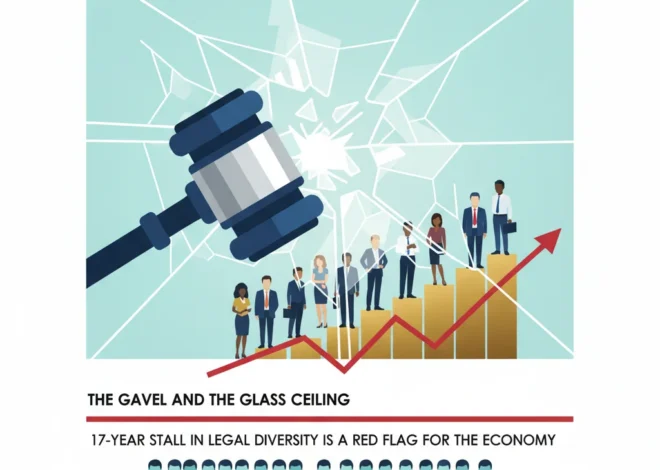The Unraveling of an Legacy: Lawrence Summers, Epstein, and the High Price of Association in Modern Finance
A Titan’s Stumble: When Past Associations Tarnish a Financial Legacy
In the unforgiving worlds of global finance and economic policy, few names carry as much weight as Lawrence H. Summers. A former U.S. Treasury Secretary, President of Harvard University, and chief economic advisor to presidents, Summers has been a central architect of American economic strategy for decades. His voice has moved markets, shaped policy, and guided institutions. Yet, a shadow from the past has re-emerged, forcing a reckoning that demonstrates a crucial modern truth: in today’s hyper-connected world, reputation is the most volatile and valuable asset of all.
Recent revelations, detailed in a bombshell report by the Financial Times, have cast a harsh light on Summers’ long-standing ties to the convicted sex offender Jeffrey Epstein. The report alleges that Summers not only maintained a relationship with Epstein long after his initial 2008 conviction for soliciting a minor for prostitution but also sought his advice on personal matters. This news has triggered immediate consequences, with Summers stepping back from several public-facing roles, including his recent high-profile appointment to the board of directors at OpenAI.
This incident is far more than a personal scandal; it is a critical case study for investors, finance professionals, and business leaders on the catastrophic nature of reputation risk. It pulls back the curtain on the opaque networks of power that influence everything from the global economy to the burgeoning world of fintech, forcing us to ask difficult questions about judgment, accountability, and the true meaning of due diligence.
The Details of the Connection
The core of the issue lies not just in the existence of a connection, but its nature and duration. According to documents reviewed by The Wall Street Journal, the relationship between Summers and Epstein was more than a casual acquaintance. Epstein, a disgraced financier who died in jail in 2019 while awaiting trial on federal sex-trafficking charges, cultivated relationships with powerful figures across academia, politics, and science. For Summers, this association provided access to Epstein’s network and financial support for his projects.
Epstein reportedly donated to charities favored by Summers and his wife and facilitated connections for Summers at the hedge fund D.E. Shaw, where he worked as a part-time managing director. Most damningly, the Financial Times report reveals that Summers sought Epstein’s counsel regarding a personal relationship he was pursuing, indicating a level of intimacy and trust that goes far beyond a simple professional contact. This occurred years after Epstein’s status as a registered sex offender was public knowledge, raising profound questions about the judgment of one of America’s leading economic thinkers.
The fallout has been swift. Summers, who had just joined the board of OpenAI in a move seen as a stabilizing force for the AI powerhouse, has stepped away. He also will not be returning to the board of D.E. Shaw. These actions underscore a new reality in corporate governance: tolerance for association with figures like Epstein is now zero. The risk of brand contamination is too high, regardless of an individual’s professional credentials.
Echoes of '97: Is Labour Repeating Blair's Greatest Economic Gamble?
Contextualizing the Fallout: A Pattern of Elite Association
Lawrence Summers is not the first, nor will he be the last, public figure to be damaged by ties to Jeffrey Epstein. The scandal has ensnared a wide array of powerful men, from royalty and politicians to titans of technology and banking. Understanding this broader context is key to grasping the systemic nature of the issue.
Below is a summary of other notable figures and the impact the association had on their public standing.
| Figure | Primary Role(s) | Nature of Association & Consequences |
|---|---|---|
| Bill Gates | Co-founder of Microsoft, Philanthropist | Multiple meetings with Epstein after his 2008 conviction, ostensibly to discuss philanthropy. Gates later called the meetings a “huge mistake” that contributed to scrutiny during his divorce. |
| Leon Black | Co-founder & CEO of Apollo Global Management | Paid Epstein over $150 million for tax and estate planning advice after his conviction. The revelations led to an internal review and Black stepping down as CEO of Apollo (source). |
| Jes Staley | CEO of Barclays | Maintained a professional and personal relationship with Epstein from his time at JPMorgan’s private bank. Staley stepped down as Barclays CEO after a UK regulatory investigation into how he characterized his relationship with Epstein. |
| Prince Andrew | Member of the British Royal Family | Long-standing friendship with Epstein and faced accusations of sexual assault by one of Epstein’s victims. He was stripped of his royal patronages and military titles and settled a civil lawsuit out of court. |
Reputation as a Financial Asset: The New Calculus of Risk
For anyone involved in investing, trading, or managing a business, the Summers-Epstein saga is a masterclass in modern risk management. Traditionally, financial risk was quantified in terms of market volatility, credit defaults, or operational failures. Today, reputation risk is arguably one of the most significant and least quantifiable threats to an enterprise or an individual’s career.
An individual’s reputation is inextricably linked to the health of the organizations they lead or advise. When a figure like Summers is tarnished, the stain spreads. Consider the implications:
- For Corporations: Having a board member with such a toxic association creates an immediate PR crisis, distracts management, and can impact the stock market valuation. It raises questions about the board’s own due diligence and judgment.
- For Investors: It introduces a new variable into investment analysis. Who is on the board? What are their past connections? This falls squarely under the ‘G’ (Governance) in ESG (Environmental, Social, and Governance) investing criteria. A failure in governance at the leadership level is a massive red flag.
- For the Finance Industry: Every such scandal erodes public trust in financial institutions. It reinforces the perception that the world of high finance operates by a different set of rules, creating a trust deficit that can have long-term negative effects on the entire sector.
The rise of financial technology has only amplified this dynamic. Information spreads instantly, and digital records are permanent. A decision made a decade ago can be unearthed and weaponized in minutes, making a proactive and uncompromising approach to ethical association the only viable strategy.
Beyond the Odds: How Financial Technology is Turning Sports Betting into the Next Stock Market
The ESG Imperative: Why Governance and Social Responsibility Matter More Than Ever
The events surrounding Lawrence Summers are a real-world stress test for the principles of ESG investing. While much of the popular focus in ESG is on the ‘E’ for environmental issues, this case is a powerful illustration of why the ‘S’ (Social) and ‘G’ (Governance) are the bedrock of sustainable value creation.
Good governance isn’t just about compliant accounting and transparent reporting; it’s about the character and judgment of the people at the top. A board’s primary role is to provide oversight and mitigate risk. If a board member demonstrates a severe lapse in personal judgment, it calls into question their ability to provide sound professional judgment. Their continued presence becomes a governance failure.
The ‘Social’ aspect is equally critical. Associating with a convicted paedophile is a profound failure of social responsibility. It signals a disregard for the victims and for the ethical standards society expects from its leaders. In an era where consumers and employees increasingly choose to align with brands that reflect their values, such a moral failing is not just an ethical lapse—it’s a commercial liability.
From traditional banking to the new frontiers of blockchain and decentralized finance, the fundamental currency is trust. Without it, the entire system collapses. The Summers case proves that this trust is fragile and must be guarded with unwavering vigilance.
The Plastic Wars: Ineos's Billion-Dollar Stand Against a Flood of Cheap Imports
A Cautionary Tale: Lessons for the Next Generation of Leaders
As the dust settles, the story of Lawrence Summers’ fall from grace offers several enduring lessons for anyone navigating a career in finance, technology, or public service.
- Associations are an extension of your resume. In the digital age, there is no meaningful separation between your professional network and your personal brand. Every connection is a reflection of your values and judgment. Due diligence is not just for investments; it’s for people.
- Character is non-negotiable. Brilliance in economics or any other field cannot compensate for a deficit in character. The leaders of tomorrow will be judged not just on their performance, but on their principles.
- There is no statute of limitations on poor judgment. Decisions made years ago can have consequences today. This is not about “cancel culture,” but about accountability. It’s a call for a higher standard of conduct for those in positions of immense power and influence.
The saga of Lawrence Summers and Jeffrey Epstein is a somber reminder that legacies built over a lifetime can be irrevocably damaged by a failure to uphold the most basic principles of ethical conduct. For the financial world, it is a wake-up call to look beyond the balance sheets and résumés, and to recognize that integrity is, and always will be, the ultimate asset.


